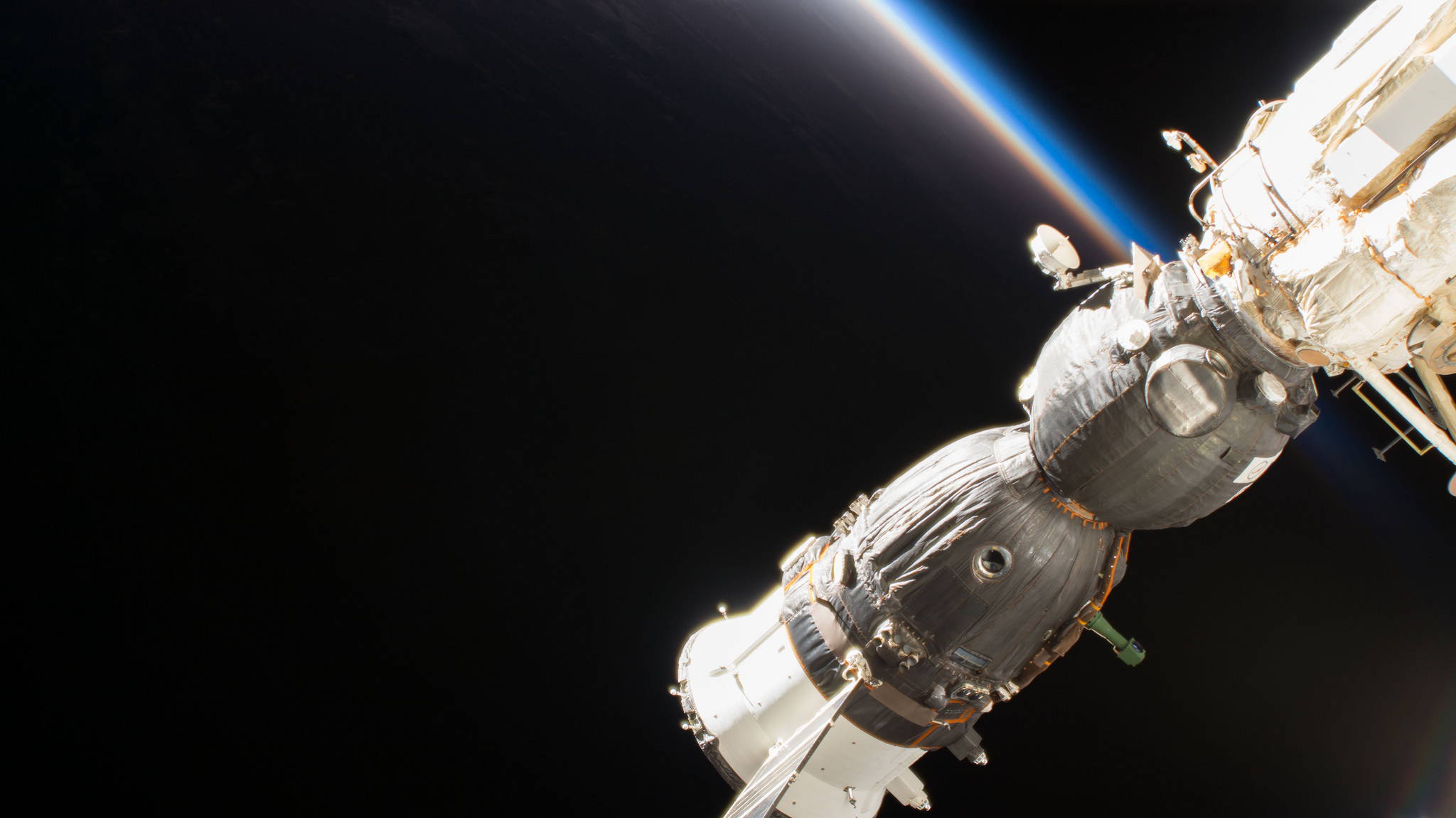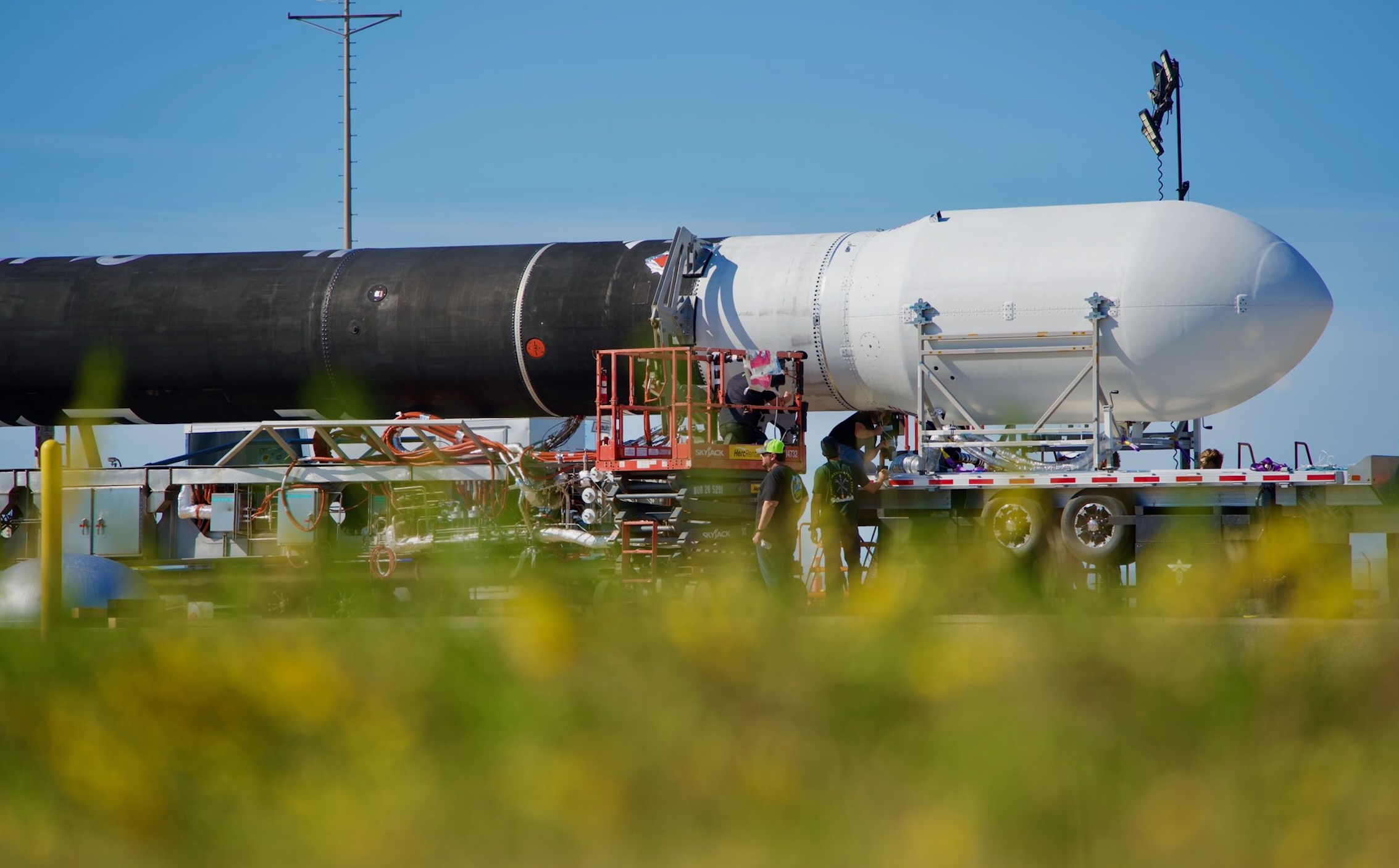Space Station Leak All Patched Up Now, NASA Says
Breaking space news, the latest updates on rocket launches, skywatching events and more!
You are now subscribed
Your newsletter sign-up was successful
Want to add more newsletters?
The repair job astronauts conducted aboard the International Space Station (ISS) yesterday (Aug. 30) appears to be complete.
Ground controllers noticed a slight dip in ISS cabin pressure on Wednesday night (Aug. 29). Yesterday, crewmembers traced the leak to a 2-millimeter-wide hole in one of the two Russian Soyuz spacecraft that's currently docked to the orbiting lab.
Cosmonaut Sergey Prokopyev, the Soyuz commander, patched the hole with epoxy yesterday, and this on-orbit fix is still holding: Cabin pressure remains steady, NASA officials wrote in an update today (Aug. 31). Flight controllers in Moscow and at NASA's Johnson Space Center in Houston continue to monitor pressure levels, NASA added.
"Yesterday showed again how valuable our emergency training is. We could locate and stop a small leak in our Soyuz, thanks to great cooperation between the crew and control centres on several continents," ISS crewmember Alexander Gerst, a European Space Agency astronaut, said via Twitter today.
Russian space officials have said that the puncture was caused by a micrometeoroid, but NASA has not confirmed this.
Soyuz spacecraft have been crewmembers' only ride to and from the ISS since NASA grounded its space shuttle fleet in 2011. (This situation should change soon, however; private astronaut taxis built by SpaceX and Boeing are scheduled to start crewed flights next year.)
The hole was found in the orbital module of Soyuz MS-09, which arrived at the ISS in June. The orbital module is the spherical upper compartment of the Soyuz, and it provides extra room for cargo and crew while the spacecraft is aloft. The module does not survive the trip home to Earth, burning up by design during re-entry into the planet's atmosphere.
Breaking space news, the latest updates on rocket launches, skywatching events and more!
ISS crewmembers were never in any serious danger as a result of the recent leak, NASA officials have said.
Follow Mike Wall on Twitter @michaeldwall and Google+. Follow us @Spacedotcom, Facebook or Google+. Originally published on Space.com.

Michael Wall is a Senior Space Writer with Space.com and joined the team in 2010. He primarily covers exoplanets, spaceflight and military space, but has been known to dabble in the space art beat. His book about the search for alien life, "Out There," was published on Nov. 13, 2018. Before becoming a science writer, Michael worked as a herpetologist and wildlife biologist. He has a Ph.D. in evolutionary biology from the University of Sydney, Australia, a bachelor's degree from the University of Arizona, and a graduate certificate in science writing from the University of California, Santa Cruz. To find out what his latest project is, you can follow Michael on Twitter.

